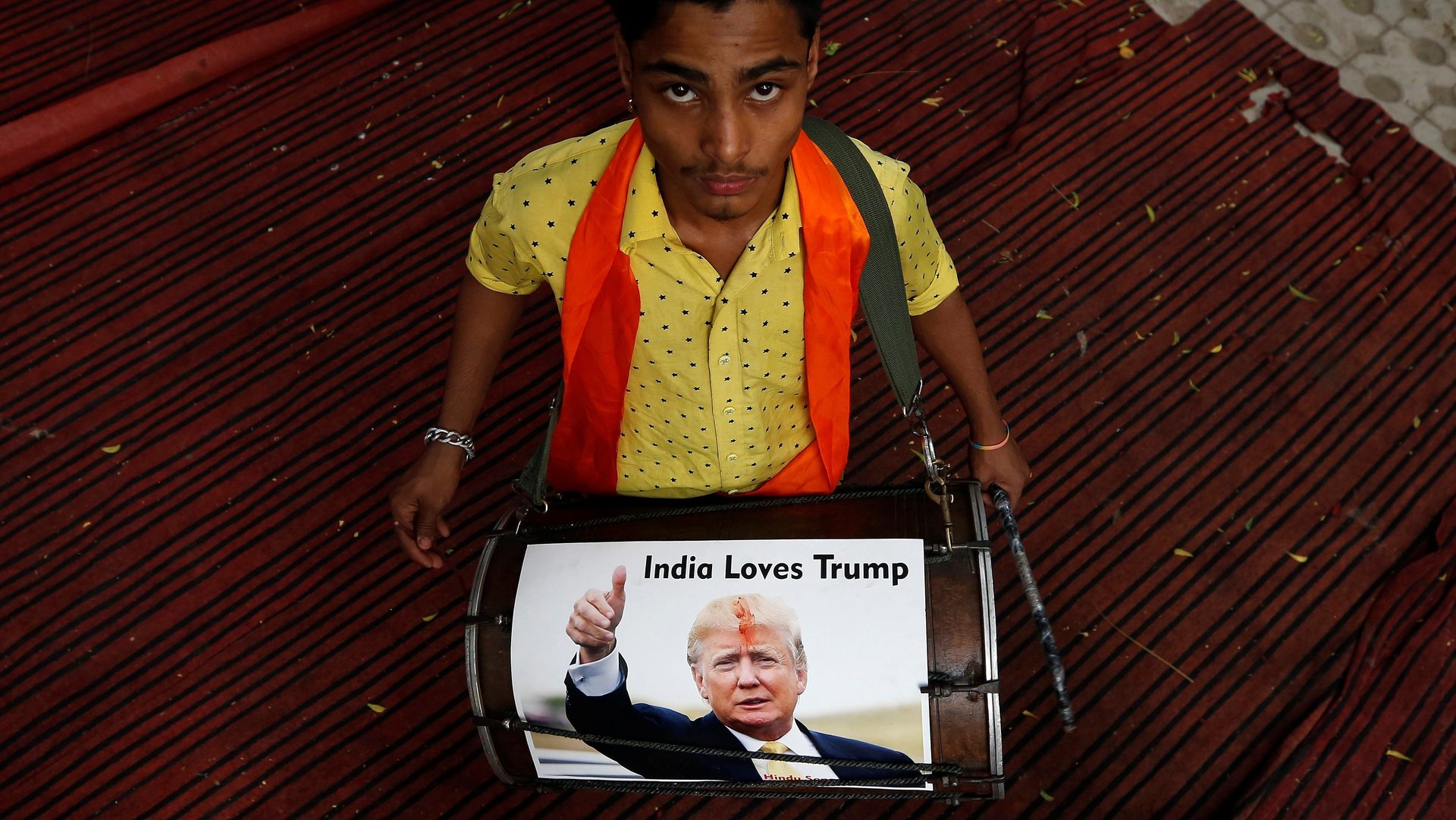No one can agree on whether Trump’s H-1B clampdown is good or bad for India
Donald Trump’s time as the US president could be an upsetting era for Indian IT.


Donald Trump’s time as the US president could be an upsetting era for Indian IT.
His overall protectionist approach and his strident stand on the H-1B programme, which allows foreign employees to work in the US for up to six years, have rattled India’s $150-billion technology sector, a sizeable 60% of whose business comes from North America.
However, there is as yet no consensus among the country’s policy-making and business classes on how Trump’s “Buy American, Hire American” war-cry will play out and how India could deal with it.
The dissenters
The Indian IT industry spans 16,000 firms across 78 countries and, in 2016, employed an estimated 3.7 million people, making it India’s largest private sector employer, according to IT trade association NASSCOM.
Hence, any development on this front gets the top rung of the government and industry involved.
Before Trump signed the executive order on H-1B, Indian prime minister Narendra Modi had stressed the importance of keeping an open mind about admitting skilled Indian workers into the US. Speaking at the Washington-based think-tank Peterson Institute earlier this month, India’s chief economic adviser Arvind Subramanian said that any “serious actions” taken by Trump on H-1B will be a cause of “worry.” During his five-day visit to America earlier this month, finance minister Arun Jaitley, too, flagged similar concerns in his talks with US treasury secretary Steven Mnuchin.
On its part, NASSCOM has been quick to dismiss the US’s allegations that the H-1B programme has been abused by tech companies. It also added that “only six of the top 20 H-1B recipients were Indian companies.”
H-1B proponents argue that foreign talent serves as the backbone of the US tech scene. “Where would Apple be, where would Cisco be, where would IBM be if they were not sourcing the best products and talent from across the world,” Reserve Bank of India governor Urjit Patel said after he delivered the Third Kotak Family Distinguished Lecture at Columbia University in New York this week.
While commerce and industry minister Nirmala Sitharaman acknowledged the US’s sovereign right to issue visas, she also pointed to the global wave of protectionism.
Looking beyond
Yet, NR Narayana Murthy, co-founder of India’s second-largest IT major, Infosys, has urged companies to diversify and hire local talent to tackle this issue. In recent years, Infosys has gone all out in this regard. Its current CEO, Vishal Sikka, is a Stanford-educated American national. And it is not just Infosys.
Wipro began ramping up hiring in the US way back in 2009. In 2013, TCS followed suit. Some firms have also been spending on acquisitions in the US to increase local manpower.
So, for more than a decade, India’s IT majors have been preparing for such a clampdown.
Besides, tightening visa norms doesn’t have to mean letting go of the US as a market.
“Everything points to a steady growth for the industry,” former Infosys chairman Kris Gopalakrishnan said, adding that the IT industry is on track to post 10% growth. Indian IT companies have also moved away from labour-intensive projects to more hi-tech virtual needs, such as cloud computing, automation, and artificial intelligence. Any signs of a slowdown are likely attributable to a pick up in automation rather than visa woes, Gopalakrishnan suggests.
Neither does he agree that India is “pleading” with the US on the visa issue. “This is a trade issue. We have certain strengths which we need to leverage. Services is our strength,” he added. “Having said that, we need to look at new models…at how the industry can transform. I see this happening. Lot more US companies are setting up IT operations in India. So, the companies are shifting to India.”
India’s richest man, Mukesh Ambani, believes Trump’s anti-H-1B stance will, in fact, help Indian firms introspect and make gains on home ground. “The domestic market is huge and this provides an opportunity to improve people’s quality of life and to make sure industries are more productive,” the Reliance Industries chairman noted.
The view is that such a forced shift could potentially steer India towards becoming a hotbed of innovation.
Undoubtedly, there is optimism. Whether it is enough to tide over the next storm that Trump whips up is yet to be seen.